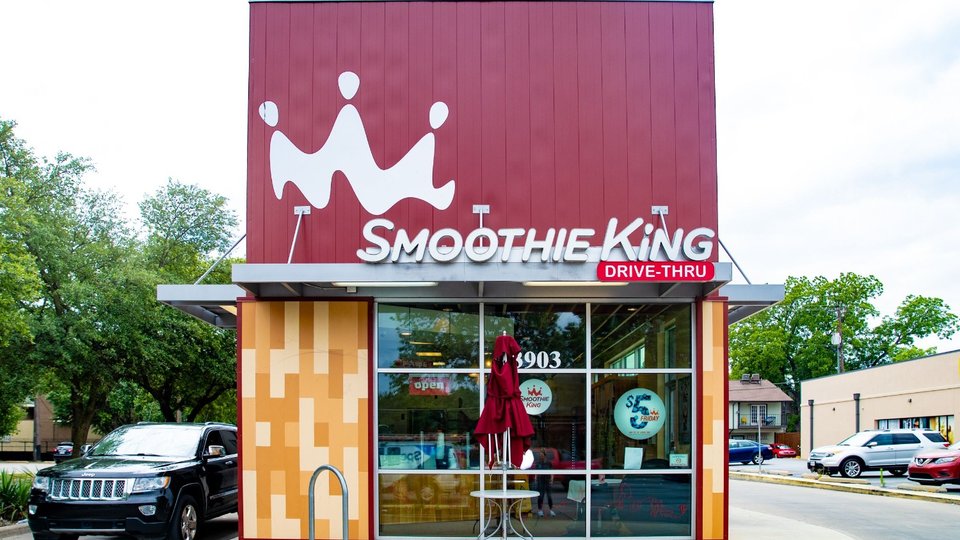Staffing
7 ways Smoothie King president prevents labor shortages
Dan Harmon, who has been president and COO of Smoothie King since 2017, reveals the seven ways he and his team retain employees.

October 11, 2021
By Dan Harmon, president and COO of Smoothie King
As restaurant brands across the nation face the ongoing labor shortage, many are focusing on innovative ways to recruit and hire new talent. As the COO of Smoothie King, the rapidly-growing QSR franchise, I work closely with our human resources team to solidify a healthy relationship between our corporate team, our franchisees, and key member employees.
Over the years, we have learned a lot about what it takes to drive employee satisfaction, which results in high employee retention. There is much more to combat the labor shortage than bringing on new talent, and there are steps you can take to retain existing team members and reduce the turnover rate in the industry.
1. Build a team of brand champions. From the corporate level to our storefronts, Smoothie King franchisees and its leadership team are looking for people who have an 'all-in' mindset when it comes to rallying around the goal of the company. Brand champions understand the company's mission, vision and the unique role they play in it. We even list it within job descriptions because the characteristics of a brand champion are supportive, protective, an innovator, who lives the mission, can view the brand from the guest's perspective, coach others and lead the charge.
From wearing a logo proudly to upholding the brand standards, if people understand the more significant "why," hey want to help and contribute to the team long term.
2. Tell impactful stories. The brand narrative brings marketing material to life and shapes more than just how your guests view you but your entire team. For instance, you can tell a lot about a company by scrolling through their website – is the company's mission and values on full display? The branding and storytelling reflect the company's culture, which is the most important aspect of employee satisfaction and what can ultimately differentiate you from other employers.
Good employers lead great people, and great brands can't fake authenticity; they live out the mission and keep everyone focused on the company's collective vision.
3. Always Audit Training. Training is one of the four pillars we use to support our franchise partners, alongside operations, marketing, and technology. To strengthen their teams at the store level, we need to provide the best resources and processes for franchisees to maximize efficiency and build up our corporate team members. We're continuously evaluating the training in place, asking how it needs to evolve and whether we are giving them too much or too little? It's vital to get everyone aligned on what we're trying to accomplish and their role in making the team successful.
The mission and vision remain the constant guiding light, but companies and franchisees need to adapt correctly. To lead an organization, one must know what it's like to work in the stores and understand the pain points within any position. How can you fix something you don't understand? Speak to people in the right voices, be mindful of what they're going through, what franchise owners are facing in the state of the industry and provide the right tools that they need.
Part of auditing requires soliciting authentic feedback — whether it be about your company, your processes or management. Many are not inclined to speak up unless provided with an opportunity, which is especially true when feedback can be perceived as unfavorable by members of upper management. Just as with key members, constructive criticism is also what allows companies to grow. Make it a point to check in with your team members to ask questions like, "Is there anything we can improve on?" or "What tools or resources do you need to be successful?"
4 Provide a career road map. People stay when provided with growth opportunities. Building a career road map and displaying the different levels within a store or corporate level empowers people to see the bigger picture and a clear path to get there. So often, employers assume people know what positions are available to them, rather than showing them it's possible, providing examples of people who have done it before them.
If there is one way to work toward an aligned goal with your team members over time, it is showing you care about more than just them completing their work. Take a vested interest in what their personal goals and aspirations are, and find ways to help them build the skills they'll need in the future to become successful and grow within the organization.
5. Hold People Accountable. A lack of accountability will cause people to leave. If someone is not upholding the work ethic and not being held accountable, it will influence the rest of the team and their viewpoint of the leader. That's where the brand champion mindset comes into play, as people want to work with like-minded individuals who are all aligned on how things get achieved. Personal responsibility is as important as upholding accountability. There should be no blaming or finger-pointing to team members or guests. When something goes wrong, a good leader is not looking for the person who did it wrong; they're looking for what they could've done differently. By leading by example, people won't be afraid to make mistakes, but instead, be open to learning from them.
6. Reward dedication. It's imperative to lead respectfully and treat people right. No matter how busy it gets or what type of shift someone has had, kindness needs to remain at the center. While raises, promotions and reviews certainly matter, it's also the little things like "please" and thank you" for a job well done. It's important to celebrate both big and little successes along the way. Many stores present team members of the month and recognize team members who reach specific goals, host parties to celebrate milestones and inspire an environment where the dedicated are in the spotlight.
7. Remember, it starts with you. Whether it's a general manager, franchisee or a corporate team member, every individual has the opportunity to set the tone. When you walk into a store powered by a united team, you can feel the vibe, and the same goes for when the energy is off. Leaders of every level can pull together a team, present the opportunities and collectively navigate how things can be done differently.












